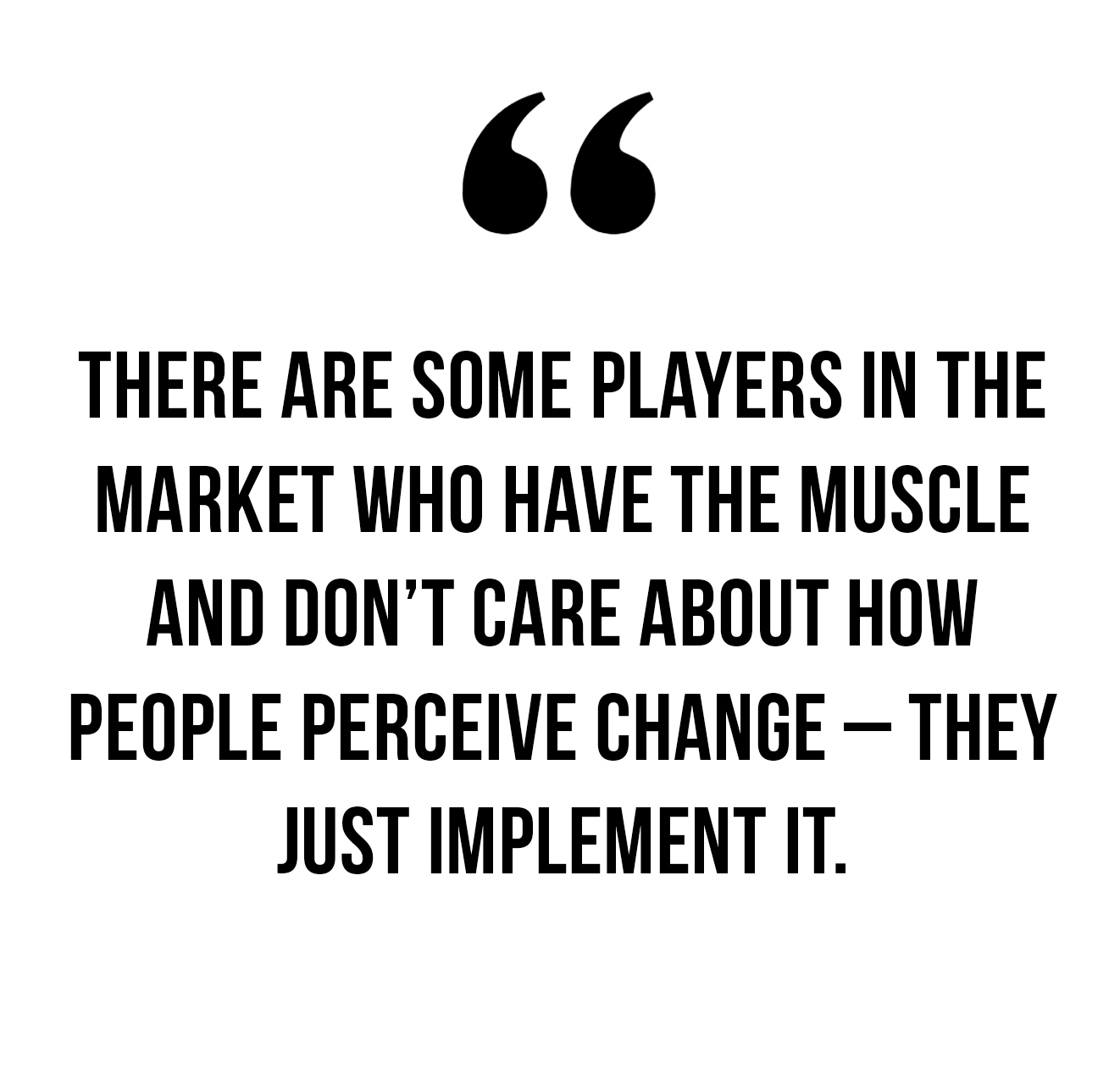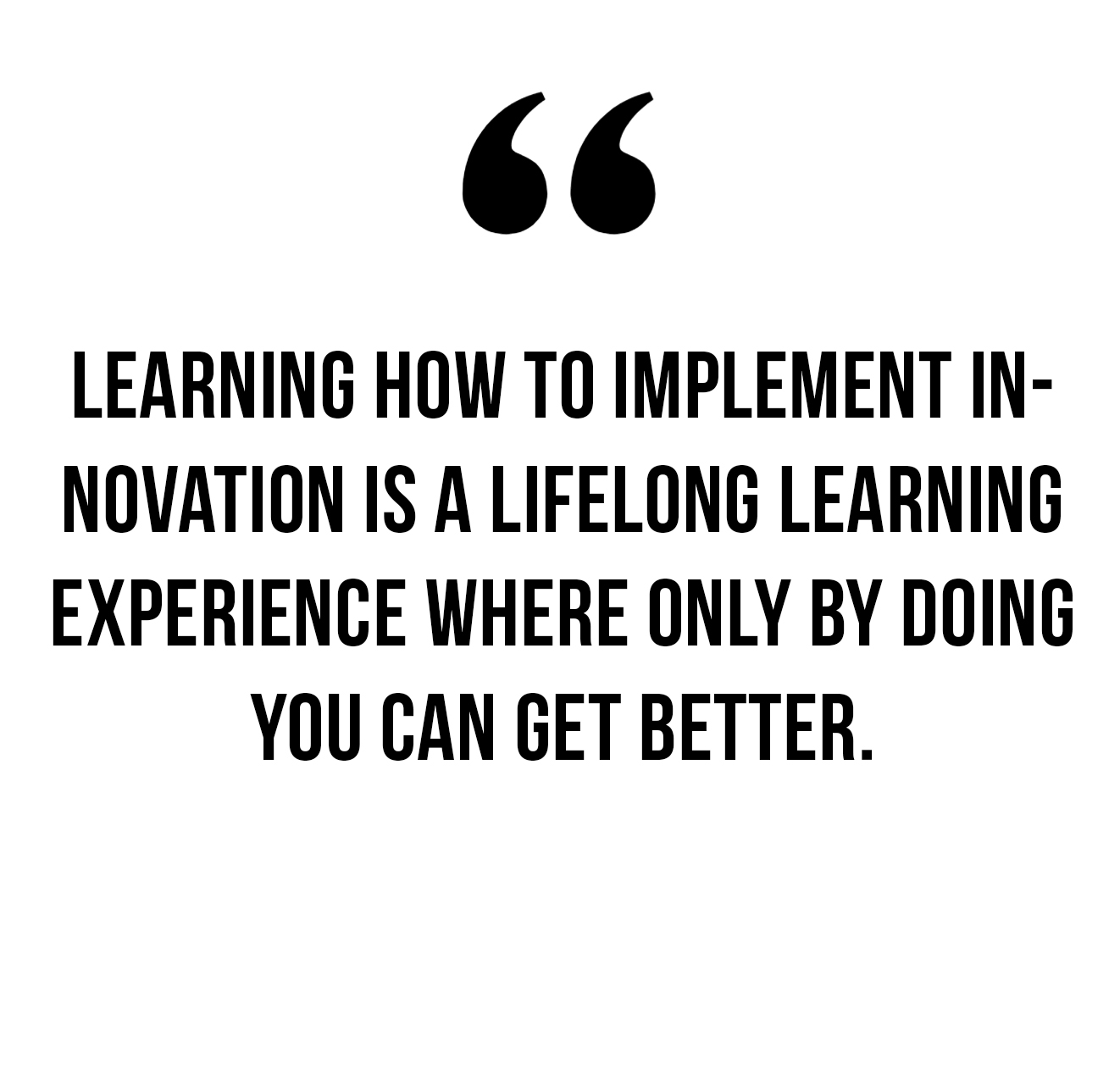Jul 20 | 2020
Q&A with Aljosja Beije, Director, Blocklab

Aljosja Beije, director of Blocklab, blockchain solutions developer for the supply chain and energy industries, explores technology’s burgeoning development amid the pandemic. Here Breakbulk asks him key questions about technology and how it can be more smoothlyy integrated into a company with successful results.
Q: What technology should be prioritized for the greatest impact on a business?
That's a tricky question, especially for someone who is in the blockchain field. To be honest, I think by prioritizing blockchain, you are trying to solve the problem from the inside out and not the outside in. The combination of available technologies and the abundance of data creates the opportunities for digitization and automation that we see now in logistics. The technology that should be prioritized depends on what problem you are trying to solve, and that is the most important factor.
For example, we are working on an electronic bill of lading solution. We are using blockchain and I wouldn't want to use another technology. However, on another platform we are using part blockchain and also part decentralized data, peer-to-peer data exchange and IoT (Internet of Things) devices. On a different platform we use a lot with artificial intelligence, so it really depends on what the business problem is in the first place, and then you take it from there. All in all there is not a one-size-fits-all solution.
Q: Does this vary from one sector to another, such as a global logistics firm versus a port?
No, overall the key concept remains “what is your problem?” and “how can we solve it?” using which technologies make the most sense. It doesn’t vary from sector to sector, but what can be different in the end is that logistics companies will implement technology into their day-to-day processes, whereas a port may or may not directly implement technology in their core process. This is because if you are a landlord port, for example, you don’t own assets, so your involvement in technology is different from if you owned the assets. It is not only dependent on whether you are a port or a logistics service provider, but what kind of port and what kind of logistics service provider you are.
Q: How do you prepare employees for a tech-based change to increase chances for a successful and sustained implementation? Should the transition be done all at once or in phases?
At Blocklab, we start small, then validate whether the technology solves the problem, and then we build it up from there. I think that is especially sensible when it comes to implementing cutting-edge technologies like
 blockchain and AI, which are huge steps for an industry that still uses fax and paper. We approach changes in stages and phases and not a big bang.
blockchain and AI, which are huge steps for an industry that still uses fax and paper. We approach changes in stages and phases and not a big bang.The only downside is there are some players in the market who have the muscle and don’t care about how people perceive change – they just implement it. The way we work is step by step: showing that it works and that it’s better and getting buy-in that way.
Q: When you work with companies implementing new technologies, is there anything you do with employees to ensure they are prepared for the change?
We start much earlier than that, because everything we do is in co-creation, so we don’t work in a client/supplier relationship. We develop software together with the companies implementing it. For example, we are working on a projet with Samsung and ABN AMRO, and they provide development capacity, and we jointly build the solution. This way, the buy-in is already there at the time of contracting, as it is something we do together. We are not hired to implement a software solution.
I don’t believe in the classical supplier/client solution because the supplier has zero motivation to finish the project as when he does, his revenue ends. The client itself is not really looking for the best possible solution but is looking for something that can be implemented within the limitations set by the supplier. You will never get to a system that can provide benefits for the wider community, as each implementation is a customized implementation. If you do it in collaboration and co-creation, you have to keep in mind at the design stage that there are other parties from different backgrounds and with different requirements to yourself which you must accommodate.
The supply chain is not only about information and the physical flow, it is also about the financial flow. If you manage to successfully integrate the financial flow in your design, then you are really creating something from the start that has a much wider appeal to the market than if a third-party logistics provider would go to a software development company, because they will not be interested in the financial flow, but it is a very important part in international supply chains.
Q: How do you counter the argument that today's tech will soon be replaced by something else, resulting in a neverending need for investment?
If we all thought like that then we would still be living in caves. It’s an important point, for example, when we started with Blocklab, we really didn’t know whether blockchain was here to stay, but we invested some money in order to find whether it would be worthwhile. I think this is the attitude that companies should take — try to understand whether it could be of use to you. It may be that some tech is useful and others aren’t, but at least speak from experience. Thinking there will always be something new in two years’ time is how you will kill any form of innovation in your company.
 If you never implement technology, then you lack the platform required to build up to the next level. Learning a new technology normally takes time. However, learning how to implement innovation is a lifelong learning experience where only by doing you can get better. So this is something where I think companies should invest in learning about new technologies, and if you find out that it doesn’t make sense to you as a company at this point in time then you get an answer based on experience and not by an opinion or gut feeling.
If you never implement technology, then you lack the platform required to build up to the next level. Learning a new technology normally takes time. However, learning how to implement innovation is a lifelong learning experience where only by doing you can get better. So this is something where I think companies should invest in learning about new technologies, and if you find out that it doesn’t make sense to you as a company at this point in time then you get an answer based on experience and not by an opinion or gut feeling.Companies starting from scratch on their digitization efforts are in a very difficult position. One thing we have seen with Covid-19 is that no one wants to touch paper anymore. Companies that have invested and experimented with new innovation and technology have an edge over companies that haven’t, because they can much quicker adapt and put these technologies into their organization.
Q: What does the workforce look like 10 years from now?
When we started in 2017 with Blocklab, we told our first employees that if they wanted to work from home and didn’t want to commute then that’s perfect. We measure productivity not presence. We were already used to remote working, as we often work with companies all over the world.
Companies now have all their employees working from home due to Covid-19, and we could argue that this might be the first step towards the end of organizations as we know it. The costs of transacting and measuring your employees has fallen dramatically because of new technologies. Why would we need employees anymore? Why not hire skills as we need them based on transaction cost economics? Firms exist because the transaction costs via the market are too high. What if we have created a market where people can so easily communicate from wherever they are with whomever they want? People can instead work for multiple companies using the skills they have. If you can coordinate your activities much easier via the market, why do you still need a firm? I think Covid-19 has projected this idea for more people to see; it’s really put digitization on the top of everyone's agenda.
People now think technology is normal, and they are more than happy to work from home. I also think the number of meetings has diminished since working from home, and people have more time to do their actual job. Companies like Facebook no longer require you to move to the very expensive city of San Francisco. If people want to stay in smaller towns outside, that is OK, though you will get a different salary. But this shows the increased flexibility of companies post-Covid-19.
The other skill when looking at logistics, a logistics professional of the future must also understand the financial side and data analytics and IT so much better. They must be a master of all trades. This will bring a big change in the types of people attracted to the logistics industry. Right now, thanks to companies like Amazon and Alibaba, suddenly logistics is a very hip and happening industry to work. But it requires a much more technical workforce than before.
 Aljosja Beije, director of Blocklab, which develops blockchain solutions in co-creation for supply chain and energy industry. Before Blocklab, Beije held a number of senior and C-level management positions in IT and SCM, within companies such as Kuehne + Nagel, GE and Nokia. He is a MSc in Quantitative Business Economics from Erasmus University. He co-authored, with Nick Vyas and Bhaskar Krishnamachari of the University of Southern California, the book Blockchain and the Supply Chain: Concepts, Strategies and Practical Applications
Aljosja Beije, director of Blocklab, which develops blockchain solutions in co-creation for supply chain and energy industry. Before Blocklab, Beije held a number of senior and C-level management positions in IT and SCM, within companies such as Kuehne + Nagel, GE and Nokia. He is a MSc in Quantitative Business Economics from Erasmus University. He co-authored, with Nick Vyas and Bhaskar Krishnamachari of the University of Southern California, the book Blockchain and the Supply Chain: Concepts, Strategies and Practical ApplicationsPhoto credit: Port of Rotterdam
Subscribe to BreakbulkONE and receive more industry stories and updates around impact of COVID-19.
